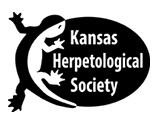Edward H. Taylor1889-1978
Taylor was born in Maysville, Missouri to George and Loretta Taylor. He had an older brother, Eugene.
Taylor studied at the University of Kansas in Lawrence, Kansas, graduating with a B.A. in 1912. Field trips during his time at the University of Kansas with Dr. Clarence McClung and Dr. Roy Moody helped prepare Taylor for his future endeavors.
Between 1916 and 1920 he returned briefly to Kansas to finish his M.A.
Upon completing his Bachelor’s degree, Taylor went to the Philippines, where at first he held a teacher’s post in a village in central Mindanao. He collected and studied the local herpetofauna extensively and published many papers. He returned to the Philippines after completing his Master’s degree and was appointed Chief of Fisheries in Manila. On his many survey trips, he continued collecting and studying fishes and reptiles of the islands.
In 1927, back in the U.S., he became the head of the zoology department of the University of Kansas at Lawrence. From 1929 to 1936, he studied the taxonomy of the genus Eumeces (some common skinks). Subsequently, he focused on Mexican herpetofauna, which he explored on many field trips from 1937 to 1948. In the following years, his explorations took him to Costa Rica, Sri Lanka, and Thailand, and he published extensively on all these countries. In 1965, he turned his attention onto Caecilians after having discovered a new species on an island in the Sea of Celebes.
Along with scientific career, Taylor was attached to intelligence operations. After World War I he was sent to Siberia to follow the Russian Revolution under the cover of a Red Cross mission to stop typhus epidemic. During World War II, OSS employed Taylor to teach jungle survival in British Ceylon.
Edward Harrison Taylor’s autobiographical memoir Edward H. Taylor: Recollection of a Herpetologist was published by the University of Kansas Museum of Natural History in 1975 [Monograph Series, Publication 4:1-160] with contributions from A. Byron Leonard, Hobart M. Smith, and George R. Pisani.
Taylor studied at the University of Kansas in Lawrence, Kansas, graduating with a B.A. in 1912. Field trips during his time at the University of Kansas with Dr. Clarence McClung and Dr. Roy Moody helped prepare Taylor for his future endeavors.
Between 1916 and 1920 he returned briefly to Kansas to finish his M.A.
Upon completing his Bachelor’s degree, Taylor went to the Philippines, where at first he held a teacher’s post in a village in central Mindanao. He collected and studied the local herpetofauna extensively and published many papers. He returned to the Philippines after completing his Master’s degree and was appointed Chief of Fisheries in Manila. On his many survey trips, he continued collecting and studying fishes and reptiles of the islands.
In 1927, back in the U.S., he became the head of the zoology department of the University of Kansas at Lawrence. From 1929 to 1936, he studied the taxonomy of the genus Eumeces (some common skinks). Subsequently, he focused on Mexican herpetofauna, which he explored on many field trips from 1937 to 1948. In the following years, his explorations took him to Costa Rica, Sri Lanka, and Thailand, and he published extensively on all these countries. In 1965, he turned his attention onto Caecilians after having discovered a new species on an island in the Sea of Celebes.
Along with scientific career, Taylor was attached to intelligence operations. After World War I he was sent to Siberia to follow the Russian Revolution under the cover of a Red Cross mission to stop typhus epidemic. During World War II, OSS employed Taylor to teach jungle survival in British Ceylon.
Edward Harrison Taylor’s autobiographical memoir Edward H. Taylor: Recollection of a Herpetologist was published by the University of Kansas Museum of Natural History in 1975 [Monograph Series, Publication 4:1-160] with contributions from A. Byron Leonard, Hobart M. Smith, and George R. Pisani.
